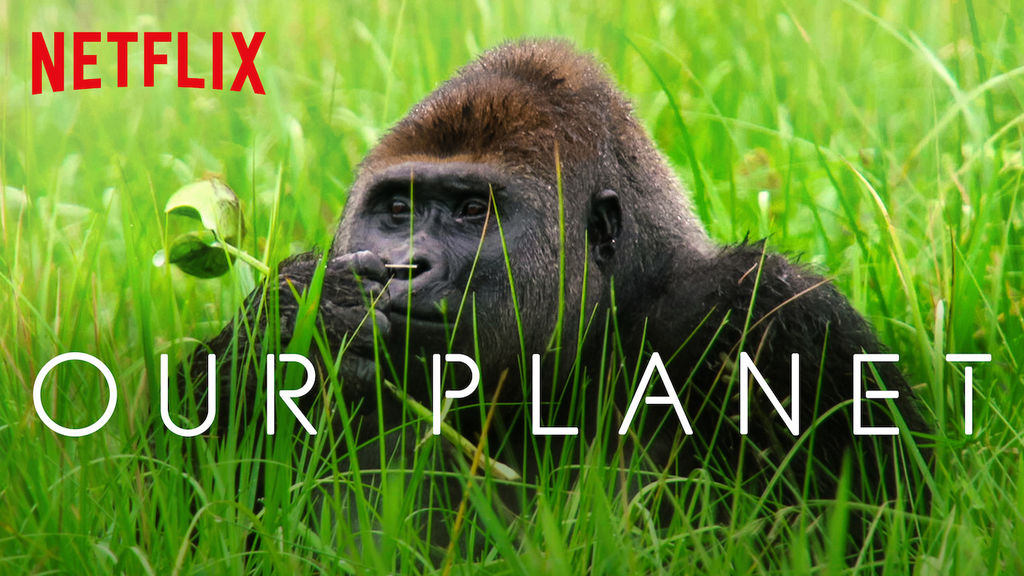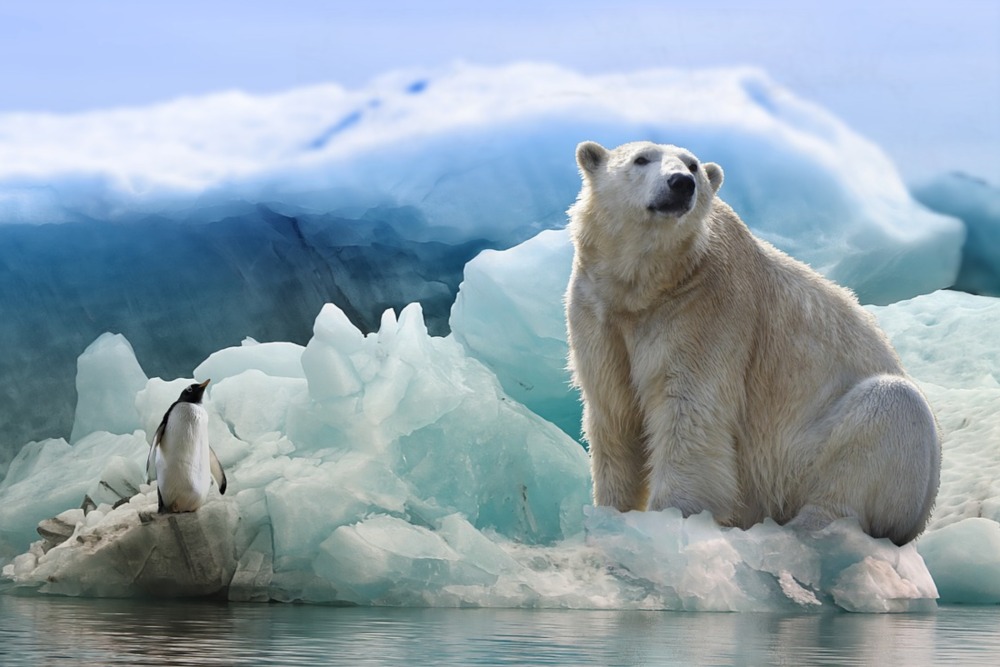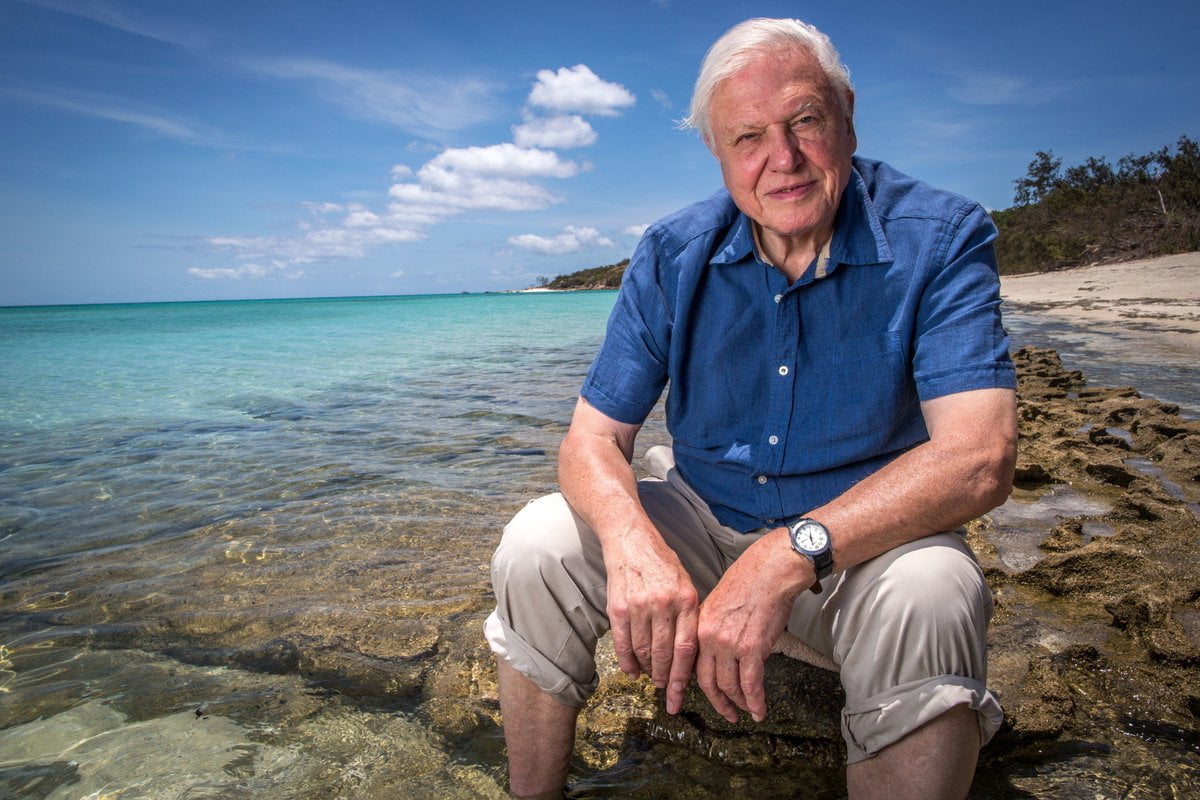David Attenborough’s latest nature documentary is a call to action. But the solutions offered – focusing on individual responsibility, anti-consumerism, international treatise, etc. – fail to see the wood for the trees.
Our Planet is a new eight-part Netflix documentary series produced in collaboration with WWF (the World Wildlife Fund). The series is narrated by the world-famous authoritative voice of nature, David Attenborough. Unlike most wildlife and nature documentaries which instil a sense of remoteness, however, ecological degradation is painted in all its colour.
The series portrays the delicate interconnections between different eco-systems. The natural processes that shape and sustain life are covered in immensely impressive depth, with our collective agency invoked for the worst features of the ecological crisis.
We are told that in one human lifetime wildlife populations have fallen by an average of 60%. We are shown over 100,000 walruses stranded on a corpse-ridden beach due to their natural habitat disappearing. From the depictions of a whale calf chemically poisoned by the accumulation of plastics in the ocean, to the eye-watering 75 million tonne glacier dramatically collapsing in minutes, the point is made plain as day.
The crisis is astutely brought home. The stability of our planet can no longer be taken for granted. But what is the solution?
Monopolies
The documentary links to a webpage where Attenborough explains the causes of our planetary crisis as the “natural result” of the activities that have allowed humankind, as a whole, to meet its needs and thrive as a species. He proposes for everybody to “reduce our impact by making sure that everything we do, we can do forever”.
This vague remark is not an honest attempt to solve the environmental cataclysm. Nonetheless, four hard-and-fast rules are offered for tackling climate change.
Firstly, phasing out fossil fuels and replacing them with renewable energies. This is certainly a necessary measure. But what is lamentably omitted is the stranglehold fossil fuel monopolies have, not only over nature, but in the political sphere also.
Even if green energy became profitable for these companies, with green energy sources produced cheaply and in abundance, markets would quickly become glutted and the crisis of overproduction would come back to bite.
In order to prevent a 2ºC temperature rise, what is required is not just a reduction in emissions, but negative emissions. But this is not a profitable endeavour. Capitalists cannot get rich by removing greenhouse gases, so it simply will not happen.

Consumerism and capitalism
Secondly, a reduction in meat consumption is advocated. Being individually conscious about what we consume is certainly positive. But purporting this to be a solution is wholly naïve. This argument is often used by the establishment to push the pernicious, plainly wrong micro-consumerist narrative that we are individually responsible for climate catastrophe.
Fewer than 100 big companies have been the source of more than 70% of the world’s greenhouse gas emissions in the last few decades. ‘Consumerism’, taken to be the excessive purchasing of unneeded commodities, is the habit of a wealthy minority and should not be blamed on low-paid workers for not eating in a particular way.
We simply need to look at the facts: around 50% of global carbon emissions can be attributed to the richest 10% of the population. The point to note is that individual behavioural changes can only make a meaningful difference alongside fighting for a fundamental transformation of society along socialist lines.
Elephant in the room
Thirdly, Attenborough advocates the development of legal instruments and policies to manage oceans. But international summits between big business politicians have time and time proved obsolete. All the ‘hot air’ of these summits is only designed to give the impression that something is being done.
We see clearly here the limits of the nation state. World leaders are desperately trying to protect the profits of their own nation’s capitalists. Meanwhile, they are attempting to export crises elsewhere.
Finally, the show calls for measures to protect biodiversity in every ecosystem. But let’s be clear. The reason for the current paralysis is simple: any serious action threatens the interests of the capitalists.
The problem has never been about not knowing what steps need to be taken to address the climate crisis or humanity’s “lack of long-term vision”. The elephant in the room is the vested interests of those who profit from destruction and chaos, aided by their utter myopia.
Apology for capitalism
 All four ‘solutions’, therefore, prove elusive and ineffective. The mantra that ‘every little helps’ is an apology note for capitalism. Simply put, if everyone does a little, we’ll only achieve a little.
All four ‘solutions’, therefore, prove elusive and ineffective. The mantra that ‘every little helps’ is an apology note for capitalism. Simply put, if everyone does a little, we’ll only achieve a little.
The only way to truly claim the planet as ours is to overthrow the capitalist system – based on private ownership and profit – and establish a society based on common ownership and needs, run by the organised workers class.
Attenborough advocates a ‘stable planet able to provide for all our needs’. This is precisely what we fight for as socialists.






